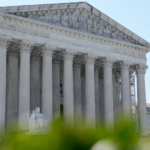As Donald Trump embarks on his campaign for the 2024 presidential election, concerns about misinformation are rising. Following a contentious 2020 election marked by numerous falsehoods in Trump’s statements, analysts are urging voters to be vigilant against potential inaccuracies during the upcoming election night. Here are twelve possible false claims to watch for as results begin to come in.
False Declarations of Victory
In 2020, Trump prematurely declared himself the winner of several swing states while votes were still being counted. As he prepares for another election, there are concerns he may repeat this behavior. Fact-checkers advise against trusting candidates’ self-proclamations and recommend waiting for major media outlets to make official calls on state and national results.
False Claims Against Kamala Harris
Should Vice President Kamala Harris win, Trump may allege that her victory is a result of cheating. Experts emphasize that polls indicate a competitive race, and both candidates have legitimate paths to victory.
Misleading Election-Related Videos
Social media has been rife with manipulated videos that misrepresent election activities. Trump previously mischaracterized footage from Georgia as evidence of wrongdoing by election workers. Fact-checkers suggest verifying claims against reputable sources like state election offices.
Misrepresentation of Reporting Errors
In 2020, a reporting error in Michigan was used to fuel conspiracy theories about election rigging. Analysts caution against assuming malicious intent behind initial reporting mistakes, reminding voters that human error is common in large-scale elections.
Claims of Widespread Fraud in Democratic Cities
Trump has long claimed that cities with large Black populations engage in voter fraud. Experts remind voters to demand evidence for such claims, noting that there was no substantiated evidence of widespread fraud in these areas in 2020.
Suspicious Late-Night Vote Counts
Trump previously suggested that votes counted late at night were suspicious. In reality, late counts are standard in populous areas. Voter counting naturally takes time, especially in urban centers.
Contesting Vote-Counting Post-Election Day
Trump has raised doubts about the legitimacy of counting ballots after election night. However, officials continue to tally votes until all valid ballots are accounted for, despite media calls based on incomplete data.
Mail-In Ballot Fraud Claims
Despite Trump’s assertions, there is no evidence to support widespread fraud related to mail-in ballots. While there may be slightly higher instances of fraud compared to in-person voting, the rates are extremely low.
Concerns Over Ballots Arriving After Election Day
Trump has suggested that mail-in ballots received after Election Day should not be counted. However, many states allow these ballots, especially those from servicemembers and citizens living abroad, as long as they are postmarked by Election Day.
Identity Verification for Military and Overseas Votes
In September, Trump claimed that military ballots were not properly verified. Experts confirm that these ballots are subject to identity checks at the local level.
False Allegations of Noncitizen Voting
Trump has repeatedly alleged that noncitizens vote illegally in large numbers. Experts assert that such claims are unfounded, citing very few documented cases of noncitizen voting.
Misrepresentation of Voter Registration Applications
Ahead of the upcoming election, Trump claimed that over 2,000 fraudulent votes were identified in a Pennsylvania county. However, this issue related to suspicious voter registration applications, not actual votes.
As the election approaches, vigilance against misinformation is crucial. Voters are urged to verify claims against reliable sources to ensure an informed electoral process.









